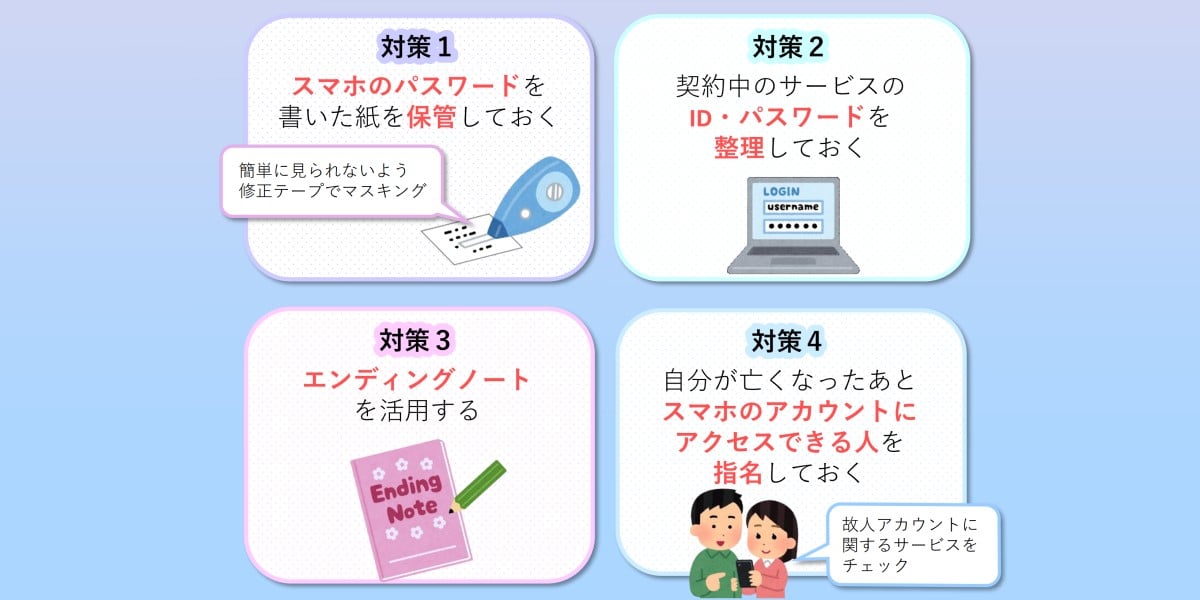Japan’s National Consumer Affairs Center on Wednesday suggested citizens start “digital end of life planning” and offered tips on how to do it. The Center’s somewhat maudlin advice is motivated by recent incidents in which citizens struggled to cancel subscriptions their loved ones signed up for before their demise, because they didn’t know their usernames or passwords. The resulting “digital legacy” can be unpleasant to resolve, the agency warns, so suggested four steps to simplify ensure our digital legacies aren’t complicated:
- Ensuring family members can unlock your smartphone or computer in case of emergency;
- Maintain a list of your subscriptions, user IDs and passwords;
- Consider putting those details in a document intended to be made available when your life ends;
- Use a service that allows you to designate someone to have access to your smartphone and other accounts once your time on Earth ends.
The Center suggests now is the time for it to make this suggestion because it is aware of struggles to discover and resolve ongoing expenses after death. With smartphones ubiquitous, the org fears more people will find themselves unable to resolve their loved ones’ digital affairs – and powerless to stop their credit cards being charged for services the departed cannot consume.



Also are you going to update if every three months when you change your passwords? Writing it down gives only a false sense of legacy access that will likely never end up working
Let’s be realistic here. People ain’t changing their passwords every month, 3 months, even yearly.
A lot of employers require this and people sync up their other passwords or if you’re like me, you average a change for many of your passwords every 6months or so simply because you are forced to change since you can’t remember the damn thing.
It’s not recommened to do anyway. So why bother if it’s random generated?
deleted by creator